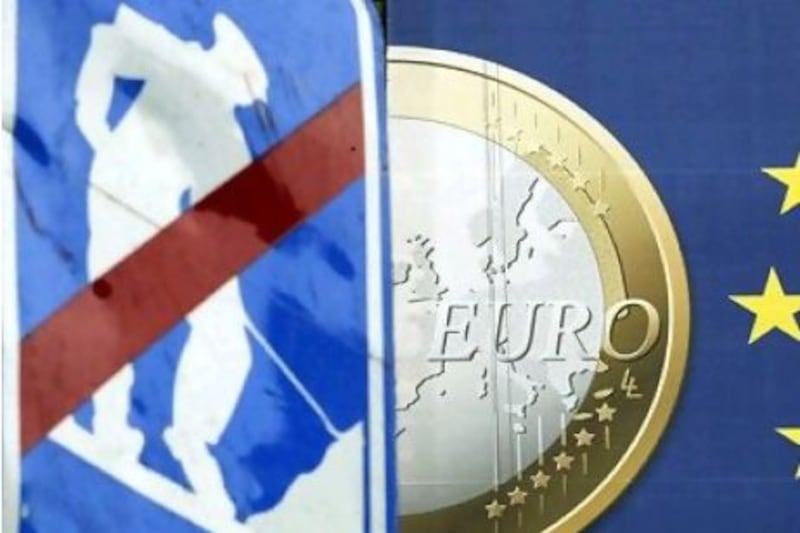The few savvy investors who foresaw this year’s rally in the euro now say the currency may lose steam.
UBS Wealth Management, which predicted at the start of the year that the common currency may climb, sees a correction on the cards as it bets that the European Central Bank will start unwinding its stimulus slower than the market expects. Its projection of US$1.15 stood out given its contrarian nature at a time when the majority of forecasters surveyed by Bloomberg expected it to slip to around $1.03 or even parity.
The euro began the year on a bleak note as analysts were bullish on the dollar given the lofty expectations surrounding then newly elected president Donald Trump’s fiscal reforms. The common currency, however, defied skeptics to rally in the absence of tax reforms in the US, an improvement in the euro area economic outlook and ebbing regional political risks.
“At the start of the year, dollar mania was the rage, and now ‘europhoria’ has taken over as markets have come around to the view that the ECB will start to reduce bond purchases early in 2018,” said Mark Haefele, the global chief investment officer at UBS Wealth Management. “But the bulk of the euro rally may now be over, at least for the next few months.”
There is even a possibility the dollar could rebound in the short term if the U.S. passes a tax-reform package or raises its debt ceiling without incident, Zurich-based Haefele said. UBS Wealth, which recommends that investors should hold a neutral position on the euro against the dollar, predicts the currency will trade at $1.18 in six months.
________________________
Read more:
[ Euro slips after six months of gains as ECB eyed ]
________________________
The euro traded at $1.1904 on Monday, taking its gain for the year to 13 percent, the second-best performance among the Group-of-10 currencies. Even as of Monday, only 21 out of 109 economists surveyed by Bloomberg forecast the euro will trade at $1.20 or higher by the end of the year.
ECB policy makers may not be ready to finalize a decision on their bond-purchase plan until just a couple of weeks before the current program expires, officials familiar with the matter said on Friday. The central bank meets on Sept. 7, and strategists expect President Mario Draghi to step up verbal intervention to halt the euro’s rally.
Even though the pace of further appreciation in the currency may moderate, the euro is likely to be well-supported, according to UniCredit. The euro’s rally shows the pricing out of the excessive euro zone pessimism of the last couple of years and has further to run as portfolio flows turn supportive, London-based strategist Vasileios Gkionakis said in emailed comments. UniCredit predicts the currency is likely to end the year at $1.20, and investors may consider buying any dips toward $1.17.
Commerzbank believes the euro will “lose some ground” against the dollar.
“The ECB will taper more slowly than the market expects, and since the Fed could raise its rate more quickly than the market expects,” there is scope for the euro to adjust lower, Antje Praefcke, a Frankfurt-based strategist, said in emailed comments.
For Bank of America Merrill Lynch, the euro has overshot what recent data would justify. While the bank revised upward its year-end projection from $1.08, it expects the common currency to weaken to $1.15.
“We believe the market is pricing too little for the Fed and too much for the ECB,” strategists including Athanasios Vamvakidis wrote in a note to clients last week. “We see asymmetric risks for a hawkish Fed surprise and a dovish ECB surprise this fall.”





